Shunbo Zhang
Deep Learning Based Antenna-time Domain Channel Extrapolation for Hybrid mmWave Massive MIMO
Aug 09, 2021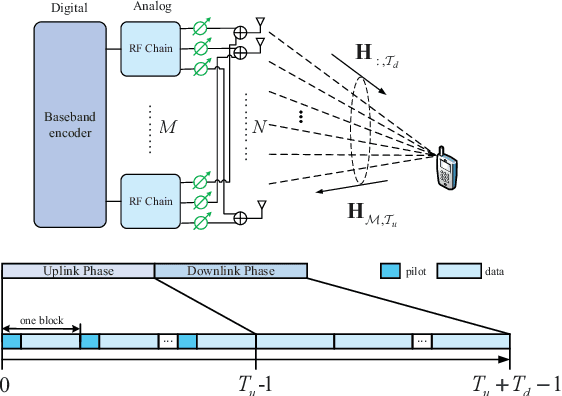
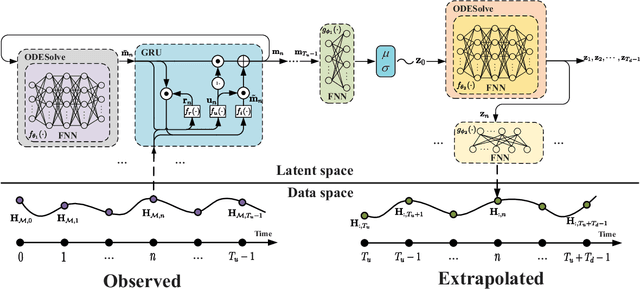
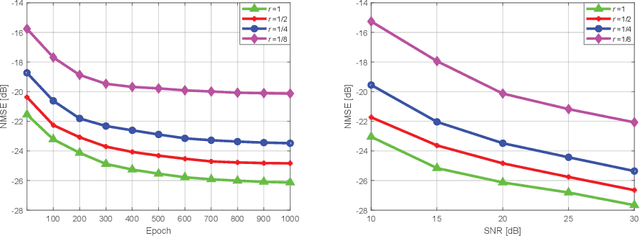
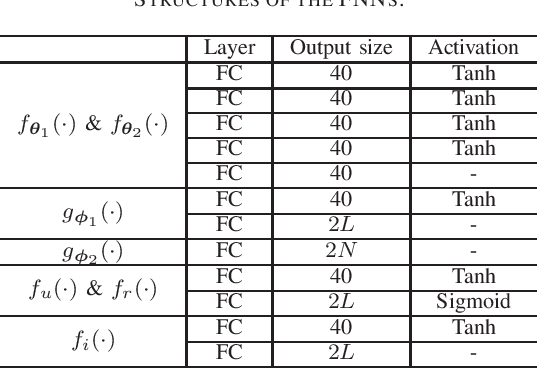
Abstract:In a time-varying massive multiple-input multipleoutput (MIMO) system, the acquisition of the downlink channel state information at the base station (BS) is a very challenging task due to the prohibitively high overheads associated with downlink training and uplink feedback. In this paper, we consider the hybrid precoding structure at BS and examine the antennatime domain channel extrapolation. We design a latent ordinary differential equation (ODE)-based network under the variational auto-encoder (VAE) framework to learn the mapping function from the partial uplink channels to the full downlink ones at the BS side. Specifically, the gated recurrent unit is adopted for the encoder and the fully-connected neural network is used for the decoder. The end-to-end learning is utilized to optimize the network parameters. Simulation results show that the designed network can efficiently infer the full downlink channels from the partial uplink ones, which can significantly reduce the channel training overhead.
Deep Learning Based RIS Channel Extrapolation with Element-grouping
May 14, 2021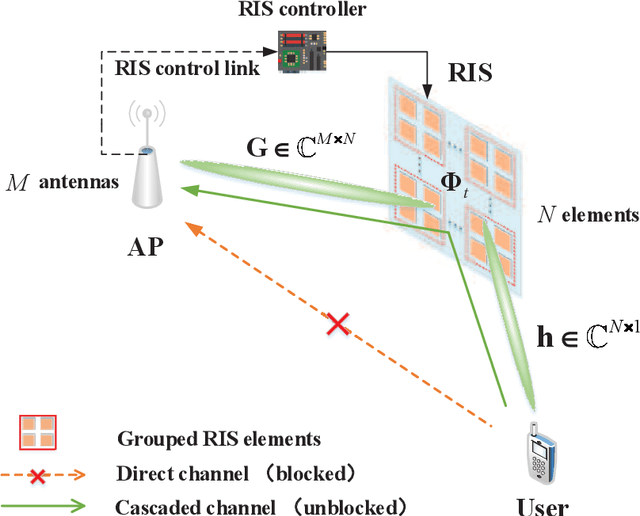
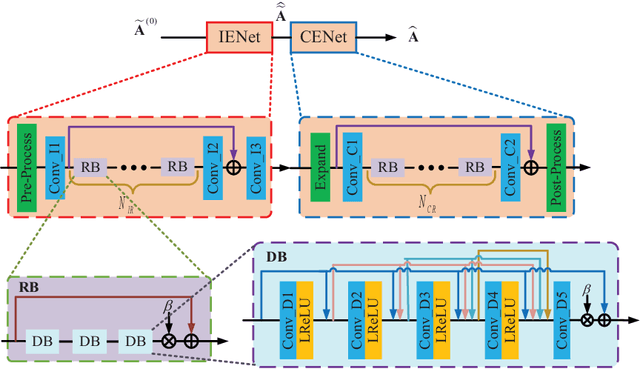
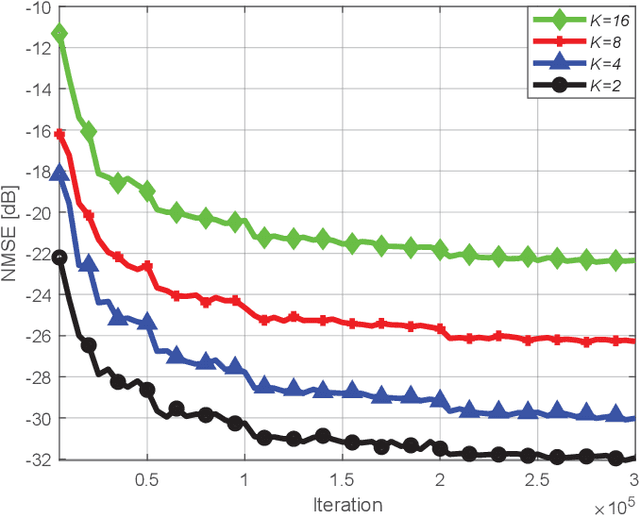
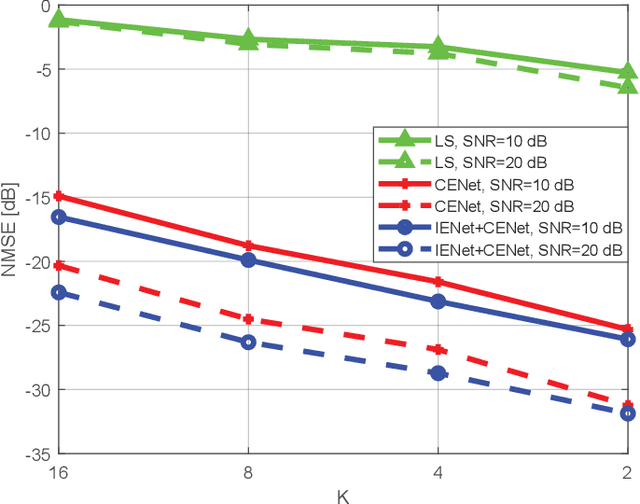
Abstract:Reconfigurable intelligent surface (RIS) is considered as a revolutionary technology for future wireless communication networks. In this letter, we consider the acquisition of the cascaded channels, which is a challenging task due to the massive number of passive RIS elements. To reduce the pilot overhead, we adopt the element-grouping strategy, where each element in one group shares the same reflection coefficient and is assumed to have the same channel condition. We analyze the channel interference caused by the element-grouping strategy and further design two deep learning based networks. The first one aims to refine the partial channels by eliminating the interference, while the second one tries to extrapolate the full channels from the refined partial channels. We cascade the two networks and jointly train them. Simulation results show that the proposed scheme provides significant gain compared to the conventional element-grouping method without interference elimination.
Deep Learning Optimized Sparse Antenna Activation for Reconfigurable Intelligent Surface Assisted Communication
Sep 03, 2020Abstract:To capture the communications gain of the massive radiating elements with low power cost, the conventional reconfigurable intelligent surface (RIS) usually works in passive mode. However, due to the cascaded channel structure and the lack of signal processing ability, it is difficult for RIS to obtain the individual channel state information and optimize the beamforming vector. In this paper, we add signal processing units for a few antennas at RIS to partially acquire the channels. To solve the crucial active antenna selection problem, we construct an active antenna selection network that utilizes the probabilistic sampling theory to select the optimal locations of these active antennas. With this active antenna selection network, we further design two deep learning (DL) based schemes, i.e., the channel extrapolation scheme and the beam searching scheme, to enable the RIS communication system. The former utilizes the selection network and a convolutional neural network to extrapolate the full channels from the partial channels received by the active RIS antennas, while the latter adopts a fully-connected neural network to achieve the direct mapping between the partial channels and the optimal beamforming vector with maximal transmission rate. Simulation results are provided to demonstrate the effectiveness of the designed DL-based schemes.
 Add to Chrome
Add to Chrome Add to Firefox
Add to Firefox Add to Edge
Add to Edge